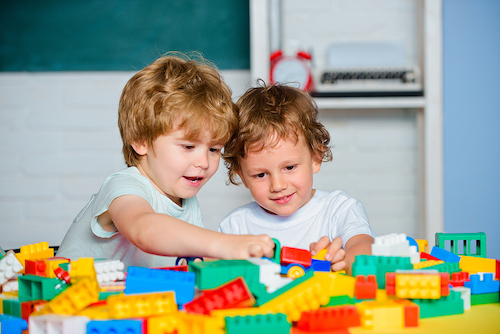February 29, 2024
by Elizabeth Pratt

You’ve been invited to a party that you’re dreading. But you feel rude declining the invitation.
But there’s good news: research published in the Journal of Personality and Social Psychology suggests that people often overestimate the social consequences of saying no.
[More]
June 28, 2022
by Elizabeth Pratt

Children who play well with peers when they are pre-school age have better mental health later in life.
Researchers from the University of Cambridge found that the capacity to play well with other children, known as “peer play ability” has a protective effect on the mental health of a child.
[More]
May 30, 2022
by Elizabeth Pratt

People may take fewer COVID-19 safety precautions and feel less vulnerable to infection when around friends.
Researchers from Universidad Carlos III de Madrid in Spain were inspired to undertake the research after realising they felt safer when with close friends.
[More]
November 30, 2021
by Elizabeth Pratt

Providing social support to others could be good for your health.
A study published in Brain, Behavior and Immunity by researchers at Ohio State University found that those who have positive social relationships in which they are available to provide support to others had lower levels of inflammation.
[More]
July 29, 2021
by Elizabeth Pratt

Evaluating the food choices made by their peers may improve the eating habits of young adolescents.
A study in the United Arab Emirates found that asking adolescents to consciously evaluate the food choices made by their peers caused them to choose healthier foods.
[More]
February 26, 2021
by Elizabeth Pratt

Teenagers who bully may be using aggression as a technique to climb the social ladder.
Research from UC Davis published recently in the American Journal of Sociology found that teens who harass, bully or victimize their peers don’t always do this due to an unhealthy home environment or due to psychological problems, but out of a desire to strategically move up in a school’s social hierarchy.
[More]
August 18, 2020
by Patricia Tomasi

A new study published in the Journal of Personality and Social Psychology looked at whether friendship jealously can be a tool for maintaining friendships in the face of third party threats. “Friendships are massively important for health and happiness, and they can be threatened when our friends form new friendships or other relationships,” study author Jaimie Arona Krems told us.
[More]
February 8, 2019
by Elizabeth Pratt

When it comes to selecting friends, children prefer those with the same accent as them. Researchers say understanding the psychology behind such choices helps understand and mitigate biases against others later in life.
[More]
August 21, 2018
by Elizabeth Pratt

Researchers have found a poor sleep can contribute to feelings of loneliness and make a person less socially desirable.
[More]
September 24, 2014
by Cathy England, MA

Very often when you are faced with dealing with any type of mental health issue or severe stress, it can be easy to isolate yourself and try to handle things on your own. However, one of the best coping strategies is to build a multi-faceted support system that you can access whenever you may need it. Some of this support can come from social relationships, family, professional resources, or support groups.
[More]